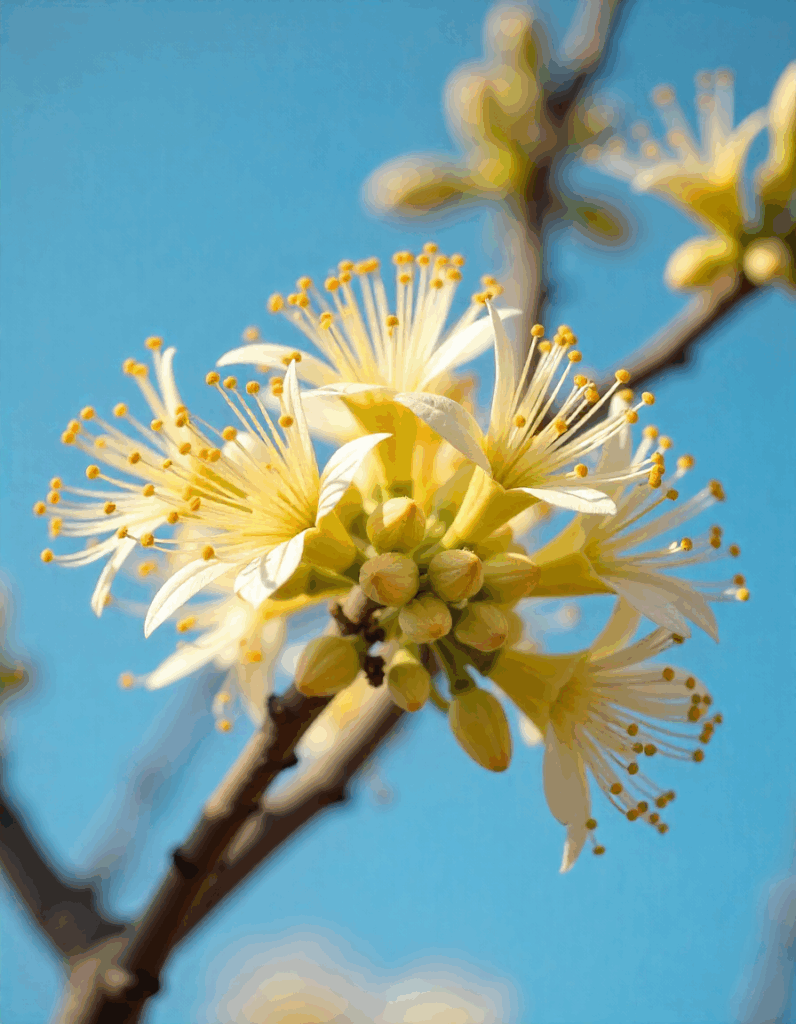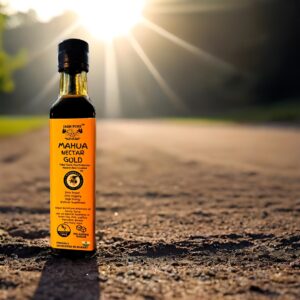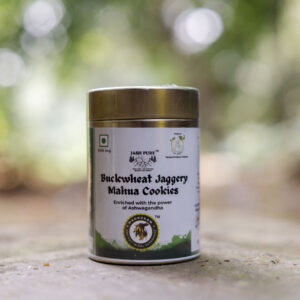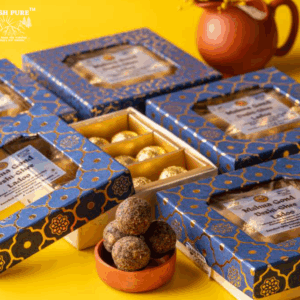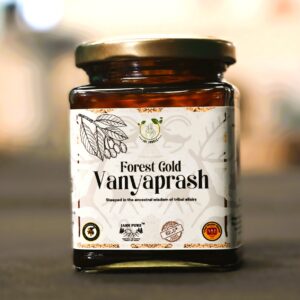Introduction – A Sacred Flower, A Lost Identity
In the forested heartlands of central and eastern India, the Mahua tree (Madhuca longifolia) has stood tall for centuries — feeding, healing, and sustaining tribal communities. Each summer, its pale yellow blossoms gently carpet the forest floor, filling the air with a sweet fragrance that symbolizes both survival and cultural pride.
For tribal families, Mahua is more than a flower — it is food, medicine, ritual offering, and livelihood. It nourishes during lean months, serves as sacred offering in festivals, and plays a central role in daily life — dried, cooked, fermented, or bartered.
But in mainstream India, Mahua came to be seen through a narrow lens: alcohol. Its true identity — as a nutritious, medicinal, and cultural treasure — was buried under colonial restrictions, stigma, and lack of awareness.
Today, with the rise of Ayurveda, plant-based wellness, and clean nutrition, Mahua is re-emerging as a forgotten forest superfood — offering solutions for both health and sustainability.
Mahua in Ayurveda & Vedic Knowledge
The value of Mahua is not a modern discovery — it is deeply embedded in India’s oldest wellness systems.
🕉️ Ayurvedic & Vedic References
-
Atharva Veda (1200–1000 BCE): Mentions Madhuka in fertility rites, sacred intoxicants, and love charms — highlighting its spiritual and social importance.
-
Charaka Samhita (100 BCE–200 CE): Classifies Madhukpushpa as:
-
Madhura (Sweet): Cooling and nourishing
-
Śīta (Cooling): Balances heat & inflammation
-
Guru (Heavy): Strengthening, fertility-boosting
-
Br̥haddam (Nourishing): Builds tissue, balances Vata-Pitta doshas
-
-
Sushruta Samhita: Lists Mahua in the Sarivadi Gana, a group of herbs with healing and restorative properties, used in skin and bleeding disorders.
-
Kalidasa’s poetry and tribal songs celebrate Madhuka groves as divine and life-giving.
“Madhukpushpam madhuram śītalam guruvṛhaddam, bala-śukra-karam vata-pitta-vināshanam.”
The Mahua flower is sweet, cooling, nourishing. It enhances strength, improves fertility, and balances the body’s energies.
Nutritional Powerhouse – Backed by Modern Science
While Ayurveda emphasized Mahua’s cooling and strengthening effects, modern research confirms its impressive nutritional profile.
🌿 Nutritional Composition (per 100g dry Mahua flower)
| Nutrient | Value | Benefit |
|---|---|---|
| Iron | 1412 ppm | Combats anaemia, builds haemoglobin |
| Calcium | 1316 ppm | Strengthens bones & teeth |
| Magnesium | 2421 ppm | Supports nerves, muscles, and energy |
| Zinc | 71 ppm | Enhances immunity, growth |
| Potassium | 166 ppm | Maintains hydration, blood pressure |
| Natural Sugars | ~50g | Slow-release energy |
| Proteins & Amino Acids | – | Tissue repair & muscle growth |
| Copper & Manganese | Trace | Enzyme function, metabolism |
🧃 Mahua Nectar (Concentrated Extract)
-
Vitamin C: 18.2 mg → Immunity & antioxidant defense
-
Protein: 3.8 g → Plant-based nutrition
-
Potassium: 421 mg → Cardiovascular & hydration support
🔬 Sources: Singh (2020), Ahirwar (2018), Jai Jungle Lab Analysis (2024)
Mahua in Tribal Food Systems
Across Chhattisgarh, Madhya Pradesh, Jharkhand, Odisha, Maharashtra, and Andhra Pradesh, Mahua has been a cultural keystone species.
🌾 Traditional Uses in Tribal Diets
-
Sun-Dried Flowers – Stored and eaten raw or boiled
-
Millet-Based Rotis & Porridges – Mixed with ragi, kodo, or kutki flour
-
Laddoos & Sweets – Made with jaggery, ghee, and gond
-
Pachak (Digestive Mixes) – Combined with herbs like ajwain, jeera
-
Medicinal Tonics – For postpartum care, fever recovery, lactation
-
Community Exchange – Gifted during marriages and festivals
For tribal communities, Mahua is not just nourishment — it’s identity, economy, and culture.
Global Research Expands Mahua’s Potential
Modern research is now validating the multifunctional benefits of Mahua:
-
✅ Food Innovation – Enhances nutritional value of biscuits and laddoos (Parmar, 2020)
-
✅ Pharmacology – Antioxidant, antimicrobial, and anti-inflammatory properties (Das, 2019; Mishra, 2020)
-
✅ Beekeeping – Improves honeybee survival and yield (Singh, 2008)
-
✅ Bioethanol & Fertilizers – Converts Mahua waste into eco-friendly fuel and compost (Jha, 2013)
Why Was Mahua Forgotten?
Despite its value, Mahua remained invisible. Why?
-
⚖️ Colonial Excise Policies – Restricted Mahua to liquor production
-
❌ Cultural Stigma – Labelled as “poor man’s drink”
-
🏛️ Policy Neglect – No support or promotion compared to millets
-
🛒 Market Gaps – No organized processing, value addition, or branding
Mahua wasn’t forgotten due to lack of worth — but due to lack of advocacy and visibility.
Revival Through Women-Led Innovation
At Jai Jungle (Jashpur), tribal women are leading the charge to revive Mahua through ethical, science-backed innovation:
🌼 Product Innovations
-
Mahua Nectar – Natural sweetener, rich in micronutrients
-
Mahua Laddoos – Festive, iron-rich treats
-
Mahua Herbal Teas – Digestive, soothing blends
-
Mahua Pachak – Tangy, gut-friendly candy
These are preservative-free, scientifically processed, and rooted in tribal knowledge — perfect for the modern conscious consumer.
Beyond Food – Mahua’s Societal Impact
The Mahua revival has multi-dimensional impact:
-
👩🌾 Social – 50+ tribal women trained as micro-entrepreneurs
-
💰 Economic – Fair prices for forest produce, reduced exploitation
-
🌱 Environmental – Sustainable livelihoods supporting biodiversity
-
🧭 Cultural – Restoring pride in tribal traditions and food heritage
Conclusion – Mahua: Superfood for the Future
Mahua is not a new trend — it’s an ancient solution rediscovered:
-
📖 Rooted in Ayurveda & Vedic texts
-
🌿 Preserved in tribal food systems
-
🔬 Validated by nutrition science
-
💡 Revived through women-led innovation
As India celebrates its biodiversity and traditional knowledge, Mahua stands ready — beside millets, moringa, and quinoa — as India’s contribution to global wellness and sustainable food systems.
🔗 Explore Our Mahua Heritage Collection at www.jaijungle.com
→ Taste tradition. Support women. Nourish sustainably.
जंगल से जीवन तक – एक फूल, अनेक उपयोग, अनंत संभावनाएं।
Handpicked for You
-
Mahua Heritage Collection
Mahua Nectar Gold
Rated 0 out of 5₹699.00Original price was: ₹699.00.₹655.00Current price is: ₹655.00. INR Add to cart -
Mahua Heritage Collection
Buckwheat Jaggery Mahua Cookies
Rated 0 out of 5₹175.00Original price was: ₹175.00.₹170.00Current price is: ₹170.00. INR Add to cart -
Forest Sweets & Treats
Desi Ghee Mahua Gond Laddoos
Rated 0 out of 5₹350.00Original price was: ₹350.00.₹340.00Current price is: ₹340.00. INR Select options This product has multiple variants. The options may be chosen on the product page -
Mahua Heritage Collection
Forest Gold Vanyaprash – Pure Mahua Wellness Paste
Rated 0 out of 5₹599.00Original price was: ₹599.00.₹575.00Current price is: ₹575.00. INR Add to cart

